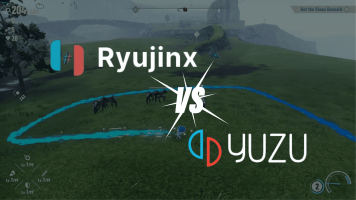We need more RPGs that represent specific cultures, rather than act as a homogenised blend of fantasy tropes.
When you think about it, there are only really a couple of cultural settings for RPGs. You've got Japan and the mighty JRPG. In those cases the games are often not set in Japan but to carry the themes and cultural markers of the Japanese culture. Then there's the Western RPG, which usually takes place in an amalgamation of European fantasies and, more often than not, comes equipped with American outlook on the world.
And then there's also the Chinese or Taiwanese RPG, which is really just emerging (at least, in terms of being localised for Western audiences), but like the JRPG, represented Chinese or Taiwanese cultural ideas and thinking.
That's really it. There are some isolated efforts to do something rooted in other parts of the world – Kingdom Come Deliverance is slavishly true to Holy Roman Empire culture and identity, Abyss Odyssey was an early 2D roguelike that was identifiable as having a Latin American setting and story. And you could argue that Disco Elysium is definable as Eastern European in thought and storytelling style… or at least I assumed that the game came from Latvia or Estonia or similar before finding out that the lead writer was indeed from Tallinn.
Otherwise, though, most of the games that come out of places outside of America, Europe and Japan are still made to fit with the identity of games from that "big three." This makes sense to an extent. Developers in Indonesia, Columbia, Australia, Iran or wherever else grew up playing the same games, and so their nostalgia and sense for game structure came from these cultural influences. Just like how if you grew up watching nothing but Hollywood films, you will inevitably make Hollywood films no matter where you're actually making them.
But the games industry is especially limited, and this is a pity because it means the cultural role for games as an art form is diminished. Audiences can't invest themselves in games and learn about global cultures, as they can with literature, music, or painting arts. Has there even been a single African RPG developed by Africans to represent one or more of the African cultures? Not that I know of (and if there is one please point it my way because I would be very interested in it).
"Art is the stored honey of the human soul, gathered on wings of misery and travail." This quote by Theodore Dreiser really cuts to the point of art. It's not just about entertainment. It's not a pastime. The role of art is to capture and store human stories, aesthetics and ideas, and the games industry is doing a very limited job of that in excluding about 180 nations and innumerable cultures from having a single story to claim as their own.
To this day I'm waiting for something like Garshasp: The Monster Slayer – a title from way back in 2011 that was vaguely like old-style God of War, but told a story from Persian Mythology, by Iranian developers. An actual Prince of Persia game, basically, and the difference between its authenticity, and the very European Prince of Persia series, is a great contrast that highlights why we really need to encourage more of this.
I understand that video games have two issues that make it difficult for the art form to properly function as an art form: games are disproportionately expensive to make, which means that the people bankrolling them need to be more risk adverse, and there's safer money in making a JRPG than a Togolese RPG (especially since to make a Togolese RPG you'll want a good percentage of the creative team to be from Togo and that would mean essentially starting the Togo development sector from scratch). Secondly, games are considered to be an "entertainment before art" medium, so games made with artistic intent tend to get criticised in a way that art-first film directors or authors wouldn't.
Imagine a Jean-Luc Goddard or Gaspar Noe equivalent game developer and how the mainstream and media would respond to those games.
But then I play something like Broken Roads, and I'm reminded of just how much potential there is for games to do more than share a half-dozen cultures into perpetuity. Broken Roads is a game filled with Australian slang and mannerisms, meanings, culture and stories. Games like this are important, and I was thrilled to have a chance to play this one.





